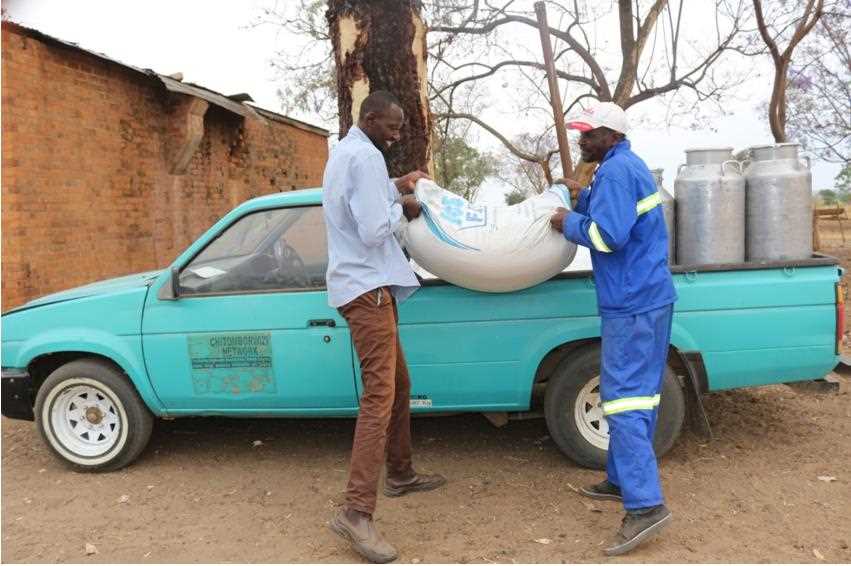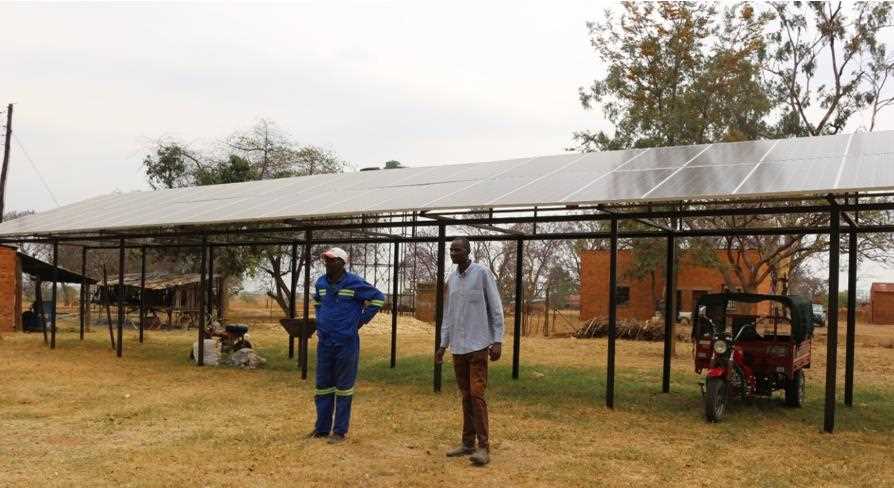As a typical partner with TranZDVC, the Chitomborwizi Dairy Network has started receiving technical assistance to access new financial services for its members, training in handling systems to reduce spoilage, access to new equipment, and additional market linkages. The Network is also keen to raise its profits through improvements in milk quality, increased capacity and higher productivity, leading to lower processing costs. Production of added value products, including cheese and butter, is also in their business plan.
‘’This kind of exposure is one approach the TranZDVC project is taking towards improving farmers’ livelihoods through higher incomes as well as providing a complete package of technical assistance required for expansion of smallholder dairy production.,’’ said John Crawford, owner of Portlet Farm and member of the Network.
Accessing inputs and credit
The primary constraint facing smallholder dairy farmers in Zimbabwe is lack of capital to invest in cows with high genetic potential and labour-saving equipment to make their milk more competitive. As they expand their herds they also lack credit to purchase supplementary feeds. Farmers partnering with TranZDVC now have the opportunity to access a complete package of commercialization tools including credit, technical assistance, market linkages, infrastructure, and training depending on their individual needs. Dairy business development is involving input suppliers, animal health service providers and milk traders in partnerships with smallholder producers that provide new market opportunities along the entire value chain.

Taking feed to the Chitomborwizi Milk Collection Centre
Through the Matching Grant Facility, the Association has benefitted from a 42-panel solar system enabling them to cool their milk value chain. Before TranZDVC support, the Association used a diesel generator which consumed 35 litres of diesel a day, translating to US$40.00 per day. They also benefitted from a silage cutter and three solar powered boreholes that are being used by three of its members on their demonstration plots in their different clusters. This is enabling the farmers to irrigate maize to be used for silage. Chitomborwizi Dairy Network Association Coordinator, Claudious Burira, said his Association has 400 dairy beasts on four clusters on farms in Chitomborwizi.
Ensuring quality and safety
While the current milk marketing system is successful in supplying rural and urban consumers throughout the country with fresh milk on a daily basis, the quality of the milk is variable.
The microbial load is often higher than the official standards, and in general, traders have little awareness of food safety standards. Raising milk quality standards will enhance market access, increase net returns of Chitomborwizi smallholder dairy farmers over the medium term, and have a positive nutritional impact on consumers.
TranZDVC, in partnership with government entities and local companies, is supporting interventions that will enable Chitomborwizi farmers to bulk and chill their milk as soon as it is collected. This will raise quality standards and reduce postharvest losses. Farmers and traders will also be offered training on best practices for milk handling and storage that will contribute to achieving higher food safety standards and quality throughout the milk chain.

Chitomborwizi farmers benefitted from a 42-panel solar system enabling them to bulk and chill their milk.
